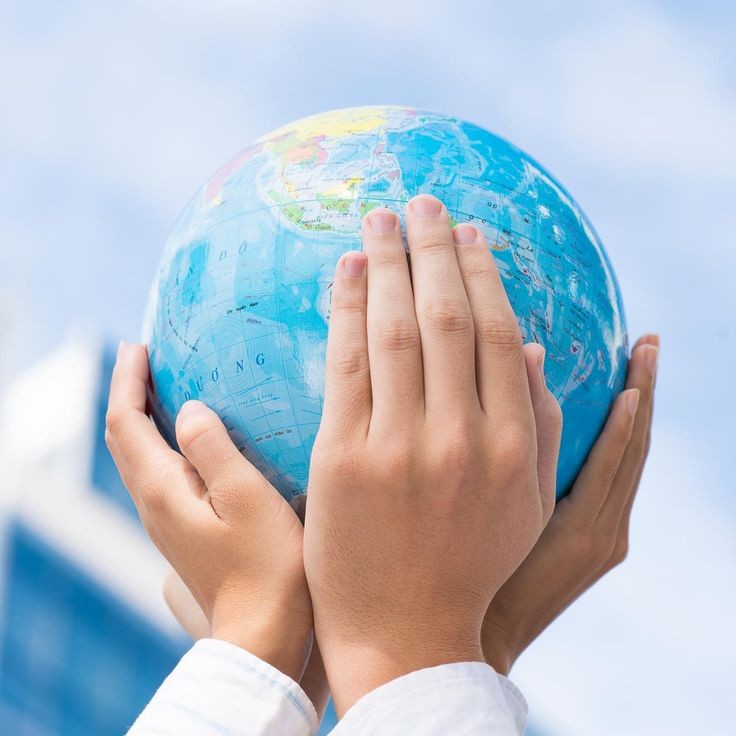Every society is made up of people who share similar interests and ways of life. Most importantly, those who interact with one another for mutual benefits and the overall development of society. The same concept applies to nations and their relations with one another.
This interaction between two countries or among many nations is what is coined as “international relations.” It is popularly said that no man is an island on his own; so is with nations. Nations have to interact with one another for mutual benefit. This interdependency is inevitable.
Today, we’ll be talking about Africa’s role in global diplomacy and international relations. Let’s get started.
Table of Contents
A Brief History of International Relations in Africa
Interactions between communities and nations have been as old as the existence of human societies. Communities need to exchange goods. Nations feel the need to expand their empire, and lesser communities seek help or aid from more powerful ones.
The subject of these diplomatic relations has kept on taking different dynamics as societies evolve and the needs of human societies change, due to discoveries and the quest for more sophisticated technological equipment.
In the case of Africa, Nigeria to be more specific and the entire world, diplomatic relations can be conveniently described from post-colonial Africa to present-day Africa. This is because post-colonial Africa represents the time when Africans can be said to have fully taken charge of the affairs and the future of their countries.
Now, let’s examine the various factors and events that have played a significant role in shaping the role of Africa in global diplomacy and consequent African identities.
Don’t you think it’s prime time to connect with passionate readers or writers like you? If you agree with us, join our WhatsApp community today. You’d be glad you did.
7 Factors Responsible for Africa’s Current State
African countries are commonly regarded as “developing nations.” Whereas, most European and North American countries are referred to as “developed societies.” These classifications are based on certain metrics, which are econometrically measured in terms of a country’s GDP and income per capita.
Developed or First World countries are richer and enjoy a high level of industrialization that ensures a high gross domestic product (GDP). On the other hand, countries in the Third World, mostly African countries, have abysmally low GDP, and they tend to be poorer.
The fate of the Third World countries has made them insignificant in international relations and global diplomacy. Hence, they cannot dictate the affairs of the world because they cannot flex their economic muscles. This situation is predicated on certain factors or events explained below:
-
Colonialism
As of the 1800s, some parts of Africa had fallen under European colonization; especially Central Africa and some parts of the coastal areas in Africa. The Berlin Conference of 1884-1885 formalized the division of Africa among European superpowers and the consequent conquest of the African territories.
Colonialists did a great evil to African societies. At first, European powers refused to communicate with Africans in their indigenous languages. While in British West Africa, Great Britain adopted mostly indirect rule and allowed the indigenes to go on with their culture. French colonies witnessed the erosion of their culture with the French policy of assimilation.
These legacies have warped the minds of elite Africans against anything African. Most Africans view their indigenous languages as inferior to the languages of their colonial masters. This in turn affects how Africa can assert herself in the comity of nations.
-
Slave trade
Joseph Conrad in his novel titled “The Heart of Darkness” described Africans as having no culture, no values, less of a human, and the scum of the earth. This view is held by European nations and is used in justifying their exploitation of the African continent.
In the wake of industrialization in Europe, European superpowers saw Africans as cheap labour to fuel industries in the old industrialized Europe. The slave trade was in four phases; the trans-Sahara slave trade, the slave trade across the Red Sea, the slave trade across the Indian Ocean and the trans-Atlantic slave trade. In each phase of these slave trades, Africans were bought as commodities and exported outside their countries to different parts of Europe and North America.
Experts put the number of Africans exported at roughly about 18 million. Studies (Ronnback, 2023; Nunn, 2008) have shown that the uprooting of Africans in their millions has had a significant impact on African communities to date, not to mention the modern form of slavery called “brain-drain” that further devastates Africa.
This has indirectly impacted the diplomatic relationship that exists between African countries and the European superpowers to date.
-
Africa’s abundant natural resources
Africa is said to be home to myriads of natural resources. According to the United Nations Environment Programme’s observation, Africa accounts for about 30% of the world’s mineral reserves, 8% of natural gas, and 12% of the world’s oil reserves. These resources have been ironically Africa’s undoing.
Initially, the resources attracted European colonialists to the continent and are the reason imperial powers still have interests in her affairs to date. Hence, according to Walter Rodney in his book “How Europe Under-developed Africa,” European superpowers feel insecure if African resources should slip out of their grip and control.
However, Westerners argue that there are other factors affecting Africa’s ability to harness their natural resources to their best benefit. It is not untrue to state that the direct involvement of European nations in the exploitation of African resources has contributed to her economic stagnation. How can Lilliputian Africa walk with great strides in the international community? This is a food for thought.
-
Internal conflicts
African societies were amalgamated indiscriminately by colonial imperialists for political and economic gains without considering their unique ethnicity and cultural identity. Oftentimes, this has given rise to tensions in such countries leading to civil wars and large-scale bloodletting that have made many African states unsettled.
Hence, there is usually suspicion among the groups that make up African countries. This has hindered such states from having one voice and purpose in steering the development of their countries. One tribe disagrees with the other for marginalization and attempts to use political power over it. “A house divided against itself can never stand” goes the saying.
-
Tied to colonial masters’ apron strings
Mlambo, Zubane, Enaifoghe and Mlambo (2021) concluded that Africa is still incapacitated to assert herself in her international relations with the rest of the continents and that African states are still closely tied to their former colonial masters.
This made cooperation among African countries a mirage. Mlambo, Zubane, Enaifoghe and Mlambo (2021) express that African countries prioritize diplomatic relationships with countries beyond the continent above nations within it. The implication is that Africa has no rallying force in global diplomacy. Hence, Africa’s role is considered insignificant by the superpowers.
Read also: How Africa Will Be Affected When ECOWAS Ceases to Exist: A Looming Challenge
-
Corruption and lack of vision
Africa is a rich continent, considering the large deposits of minerals and other natural resources. Unfortunately, Africa’s resources have not rubbed off on the continent owing to widespread corruption among African leaders and a lack of clear vision. African countries spend much of the revenue generated by them on trivialities and projects that cannot drive their economies.
Moreover, African governments run administrative patterns that are too expensive to maintain or needless for their economies to function. Imagine a country spending more than 50% of its income on the salaries of politicians and government workers! African leaders act as though political offices are there to enrich themselves.
This attitude has plunged many African countries into penury as leaders siphon public funds and leave the majority of the nation in abject poverty. To make matters worse, much of these stolen funds are starched away in European bank vaults to enrich their societies.
Patrick Lumumba reports that the African Development Bank estimates the losses of the continent to corruption at over US$ 300 billion yearly. This estimate represents about 25% of the continent’s GDP. The effects of corruption on the African continent are indeed devastating.
-
Scientific, economic and military might
The superpowers of the world, to be precise the G5 – China, France, Russia, the United Kingdom and the United States, are what they owe to their scientific, economic and military might. These countries dictate the tenor of international relations. The G5 are the permanent members of the Security Council of the United Nations.
This privileged position comes with the autonomous rights of veto known as “veto power.” The power to veto a decision of a world organization as the United Nations already puts all other countries at the mercy of the big superpowers.
Africa, although qualified for this exalted position in the Security Council, cannot be considered for lack of scientific growth, problem of financial distress and weak militia in terms of international standards. The only consolation African states have got is a non-permanent seat in the Security Council with no veto power.
This is an indicator that African countries are mere bystanders in global diplomacy and international relations (van Wyk, 2015).
Read also: Exploring Africa’s Rich Cultural Heritage: 20 Festivals and Celebrations in Africa
Africa’s Identities in Global Diplomacy and International Relations: Victim, Agent, or Bystander?
Having considered the various factors that put Africa in the shape it is today, we should understand that Africa’s input in international relations and global diplomacy will be minimal. Scholars have tried to describe this situation.
Jo-Ansie van Wyk describes Africa’s role in the international community as that of a “triangulated identity metamorphosing around being a victim, an agent or a bystander.”
Let us take a closer look at these triangulated roles in turns:
-
As a victim
Africa being a victim in the global diplomatic space is not a bogus claim. Evidence abounds concerning the brutalization and marginalization of the continent from the large-scale exportation of Africans as slaves to Europe and the world beyond to the era of African colonization.
This victimization and marginalization have not stopped even as African nations got their independence. Van Wyk (2015) comments that the exclusion of African states from being a permanent member of the United Nations Security Council leaves much to be desired about the role of Africa in international relations.
Moreover, the fact that no African country is a major shareholder in global financial institutions, namely; the International Monetary Fund (IMF) and the World Bank, grossly limits African countries in the global space as they cannot steer world affairs in their favour.
Read also: African Languages in the Digital Age: Revitalization and Preservation
-
As a bystander
By definition, a bystander is an onlooker; a passive entity who is indifferent and unwilling to act. Africa has recently been tagged a bystander on matters affecting the continent perpetrated either by external or internal actors. Recently, African states have witnessed the takeover of power by the military armed men.
African organizations have only rambled on about this, issuing threats that are yet to be executed. This has more or less presented the African confederation as a toothless bulldog. Perhaps, one reason for this inaction is the economic burden some police actions against these states might lay on member states.
But on the whole, the status quo echoes Africa’s insensitivity and helplessness in taking her rightful place. Moreover, the African continent is known to be the dumping ground for toxic wastes of the industrialized world. Africa is yet to prosecute to a reasonable degree of responsibility this dreadful act.
It is discouraging to find out that Africa is complicit in this crime. In all, it is notable that Africa turns a blind eye to the violation of human rights, especially by superpowers such as China. Instead of sanctioning China for violating human rights, Africa has increased trade with the superpower nation.
-
As an agent
Although the African continent had been battered, victimized and presented as a weakling by her inactions, it has managed to project itself on the international scene in certain regards. First, they’ve been successful in enforcing compliance with the non-proliferation of nuclear weapons in Africa.
The testing of nuclear weapons in the Sahara Desert by the French government in 1960, the dawn of independence in many African countries, spurred the calls from different African quarters about the denuclearization of Africa and the subsequent adoption of the UN’s Resolution on the Consideration of Africa as a Denuclearized Zone.
Furthermore, Africa had to deal with the racial prejudice in the Apartheid South Africa, a battle which Nigeria and Ghana were foremost in fighting. Africa has also managed to contain insecurity on the continent with Nigeria as the principal agent by leading different peace-keeping operations in countries such as Liberia, Sierra Leone and other West African countries.
Would you love to read Africa-related insights like this more often? Of course, it’s no big deal! All you’ve got to do is subscribe to our newsletter and let’s keep you posted.
In a Nutshell
The role of Africa in global diplomacy and international relations has been examined. Africa still has more to do because very little has been achieved. To get the most out of her global diplomatic relations, it is expedient that Africa breaks away from colonial ties and pursues custom-made African solutions for African problems.
African leaders should unite in the spirit of brotherhood to project Africa’s position with one voice rather than as divided nations. Finally, African political leaders need to understand that it is high time to do away with selfishness, greed and corruption, which are the undoing of the African states.
It is high time African resources are better exploited and utilized for the development of Africa. All these practices are to ensure that Africa takes her rightful place in the comity of nations.
Edited by Priscilla Ajayi.
About Author

-
Omokolade Fatanmi is an English language expert with interest in Discourse Analysis and Digital Media Discourse. He is also interested in blogging and copywriting. He has edited articles for school magazine, prepared seminars and organized debates and supervised and directed school drama presentations.
Omokolade is also a Yoruba-English transcriber and video subtitler with over four years experience.



